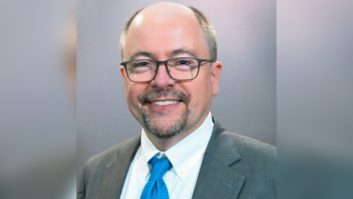Illegal broadcasting and media modernization continue to be top of mind at the Federal Communications Commission, as evidenced by recent remarks delivered by FCC Commissioner Michael O’Rielly when he addressed the Massachusetts Broadcasters Association’s annual Sound Bites event. His speech centered on pirate radio, payola concerns and media modernization efforts, among other policy updates of interest to broadcasters.
O’Rielly noted the spread of illegal radio stations from large to smaller markets, in addition to ever-increasing sophistication on the part of unregulated operators. He said the commission is “playing a long game here, and there is reason to be optimistic,” especially now that “Senate passage of the PIRATE Act is imminent.”
[Read: NYSBA Honors Native Son O’Rielly as New Yorker of the Year]
He explained that the PIRATE Act’s fine increases are meant not only to punish offenders, but to make sure these cases get on the radar of the Department of Justice. Additionally, O’Rielly said the act will speed up and streamline the commission’s timeline to file notices of apparent liability for pirates. He also cited the forthcoming list of licensed radio operators (required by the PIRATE Act) as another enforcement tool, one which citizens and advertisers can use to distinguish between legitimate stations and savvy pirates.
However, O’Rielly conceded that legislation alone won’t eradicate the problem, so the commission is “also deploying state of the art technology to make it very difficult for pirates to escape scrutiny.”
O’Rielly also addressed the issue of payola as it relates to the current broadcast laws and streaming. The practice was outlawed in 1960, and O’Rielly said he plans to explore whether the issue persists or if record companies have instituted policies that prevent the bribery — and if so, what are these safeguards.
Payola is a legacy regulation, and he questioned whether it might not fall under the umbrella of Chairman Pai’s Media Modernization initiative. But until the issue is addressed, O’Rielly pointed out, “there will continue to be two different sets of rules based on whether listeners tune in over-the-air or stream programming online.”
In his speech, O’Rielly also proposed “a guaranteed right at license renewal for a station to supplement its Issues Programming List” in order to make the documents less “over-inclusive” out of fear. O’Rielly acknowledged the Media Bureau’s efforts to help stations come into or stay in compliance, but indicated he believes this formalized system makes more sense.






